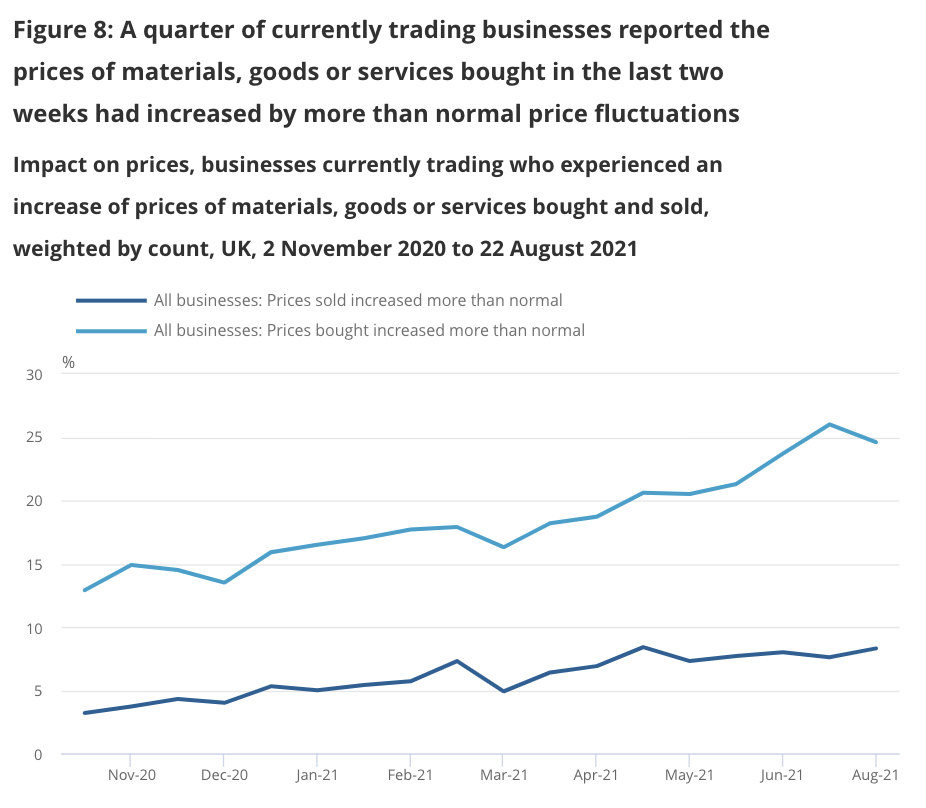Perfect storm of glitches constrains UK economy

Severe shortages of raw materials, constrained labour supply and persistently high furlough rates are putting the UK economy in a vice, according to new official figures released today.
The Office for National Statistic’s latest business insights survey shows almost one in three hospitality firms are finding it harder to recruit workers compared to normal times.
One in four businesses reported higher prices for key inputs used in production processes, up from 21 per cent in May, with half of construction firms noting increases in input costs.
A staggering 67 per cent of businesses said a paucity of suitable candidates to fill roles was putting the brakes on recruitment activity, with professional and scientific firms experiencing the most acute skills shortages.
Despite figures released by the Treasury this morning showing the number of furlough workers had dropped to its lowest level since the onset of the Covid crisis, the rate at which people are leaving the scheme has slowed.
340,000 left furlough July, down sharply from 550,000 in June, prompting experts to warn Britain could face higher joblessness after the scheme winds down fully in just three weeks’ time.
Charlie McCurdy, Economist at the Resolution Foundation, said: “The number of people coming off furlough over the summer has slowed to a trickle, as some firms and sectors – notably overseas tourism – struggle to return to pre-pandemic levels of activity.”
“As a result, up to a million employees could still be on furlough when the scheme closes at the end of this month.”
“While we expect most of these staff to return to their previous roles, a significant number will not, and we could see a fresh rise in unemployment this autumn.”
There are still 1.6m people on furlough, highlighting the scale of the mismatch between the supply of and the demand for labour in the UK. Data released by the Recruitment and Employment Confederation and KPMG today shows candidate supply levels fell at the fastest rate on record in August, while businesses ramped up hiring activity.

Severe supply and demand imbalances are prompting businesses to raise wages in a bid to attract talent, which is fuelling inflationary pressures. However, according to the ONS, 15 per cent of all British businesses cannot afford higher wages to attract workers.
There are concerns over whether worker shortages will clear. The governor of the Bank of England, Andrew Bailey, warned yesterday he is worried about persistent worker shortages producing stickier than expected inflation.
The ONS estimates inflation currently stands at two per cent annually. But, the Bank expects it to rise to four per cent by the end of the year.